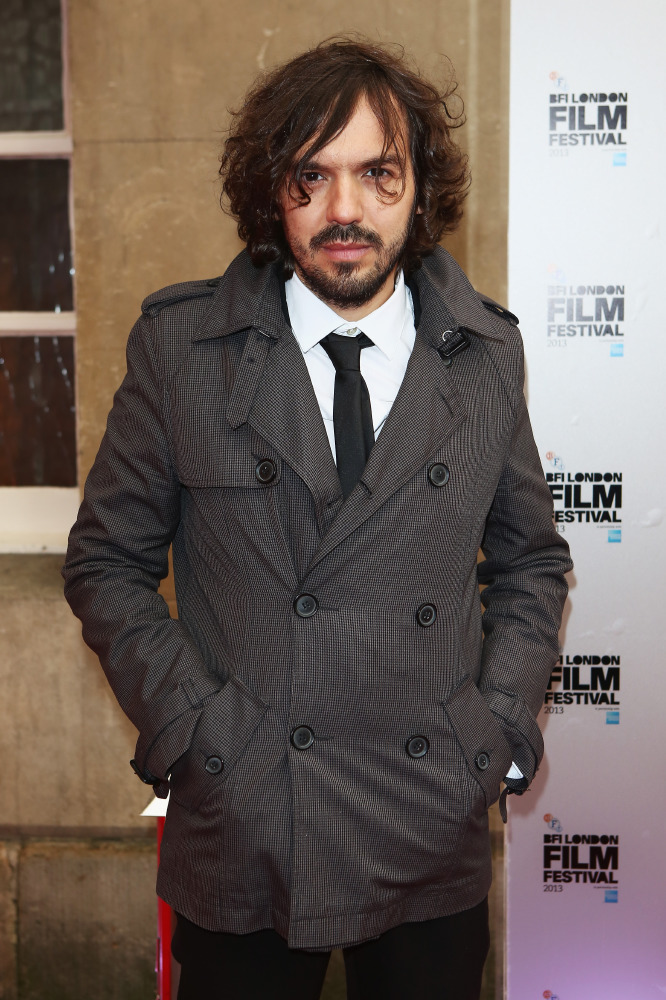
Michalis Konstantatos
Michalis Konstantatos is making his feature film directorial debut with Luton, a movie that has been playing extensively on the festival circuit so far this year.
Luton was part of the BFI London Film Festival programme and we caught up with the director when he was in the capital to promote the film.
- Luton is the film so can you tell me a little bit about?
Luton follows the everyday life of diverse people, in terms of age, social background. It is a film about violence and a film about the concealed in our everyday lives.
- You have penned the screenplay as well as being in the director’s chair, so where did this project start for you? And what triggered the idea for the story?
The starting point for me was reading in the newspaper articles and hearing about different incidents of reported violence in different parts of the world: often unprovoked. Once I started reading them, I realised that in many occasions these acts were coming from ordinary people with no real explanation for it.
This allowed me to try to think what could be the reasons for such a thing: I tried to look for reasons in their everyday lives. This made me observe everyday behaviour and the lives of people around me for quite some time.
- That does lead me into my next question. I wondered what sort of research you did into this area as you prepared to write the script?
I started by investigating different incidents and reading more about them and the background stories. Then it shifted to more observation where I was actually starting to pay attention to the people around me and their behaviour.
- This film marks your feature film directorial debut, so how have found the move into feature films?
I did not find it a terrifying experience, if sort of came quite organically. It was substantially different in that it required a much longer length of time and it was a strenuous and painful process during the different stages. However, I grew into it as we went along and, somehow, it just came.
- The movie does look at violence but it also looks at the monotony of life, so I was wondering what it was that interested you in that?
I agree. It is also about boredom and about monotony and I find these things to be a fairly evident element in the societies of bigger cities.
In particular, the kind of paralysis and the inactivity that comes as a result of the monotony: this is fairly dangerous and could lead to violence. It is a violent situation to be in, to be incompetent to react to this: that is a violent feeling in itself.
- The monotony and the boredom aspects are quite quiet times in the movie, so how difficult was that to shoot and capture?
It was all about the rhythm. Even from the script stage, I had an idea of the rhythm of each moment and so when it came down to actually filming it, it was playing out the rhythm that I had conceived.
It was an effort for me to try to experience these moments in the lives of these people as real-life moments. I think it was a really difficult process.
- A great cast has been assembled for the film so what were you looking for when you were casting the roles of Makis, Mary and Jimmy?
Casting is very time consuming process for me; it actually took about two years to find the right actors for the roles. I was looking for a certain chemistry to be present between me and them as well as them being appropriate for what I had in mind.
At the same time, I would have a certain feeling that they are the right ones. Because it took quite a bit of time to make this movie, they had to be willing to be part of this process as well.
- How have you been finding the response to the film? It seems to have been playing well on the festival circuit.
The response that we are getting so far is, in a way, can be expected. It quite often splits the audience as some people like the movie while others don’t get into it. I think that it has a lot to do with the expectations of everyone toward the film that you are making and what they expect to be seeing.
- How exciting is it to be at the London Film Festival? In addition, how important is a festival like this for first time filmmakers such as yourself?
I am enthusiastic to be here as a first time filmmaker. There are many great films on show here and it is great to be part of such a strong programme.
I also like that the festival is spread around the city and in different venues, I like the accessibility for the London audience. The accessibility that the audience has to this festival is a great gift to a filmmaker.
- Finally, what is next for you?
I will be taking Luton to more festivals. But I am also working on my next project, which is another feature film. At the same time, I am working on a theatre play with my theatre team in Athens.
Tagged in BFI


